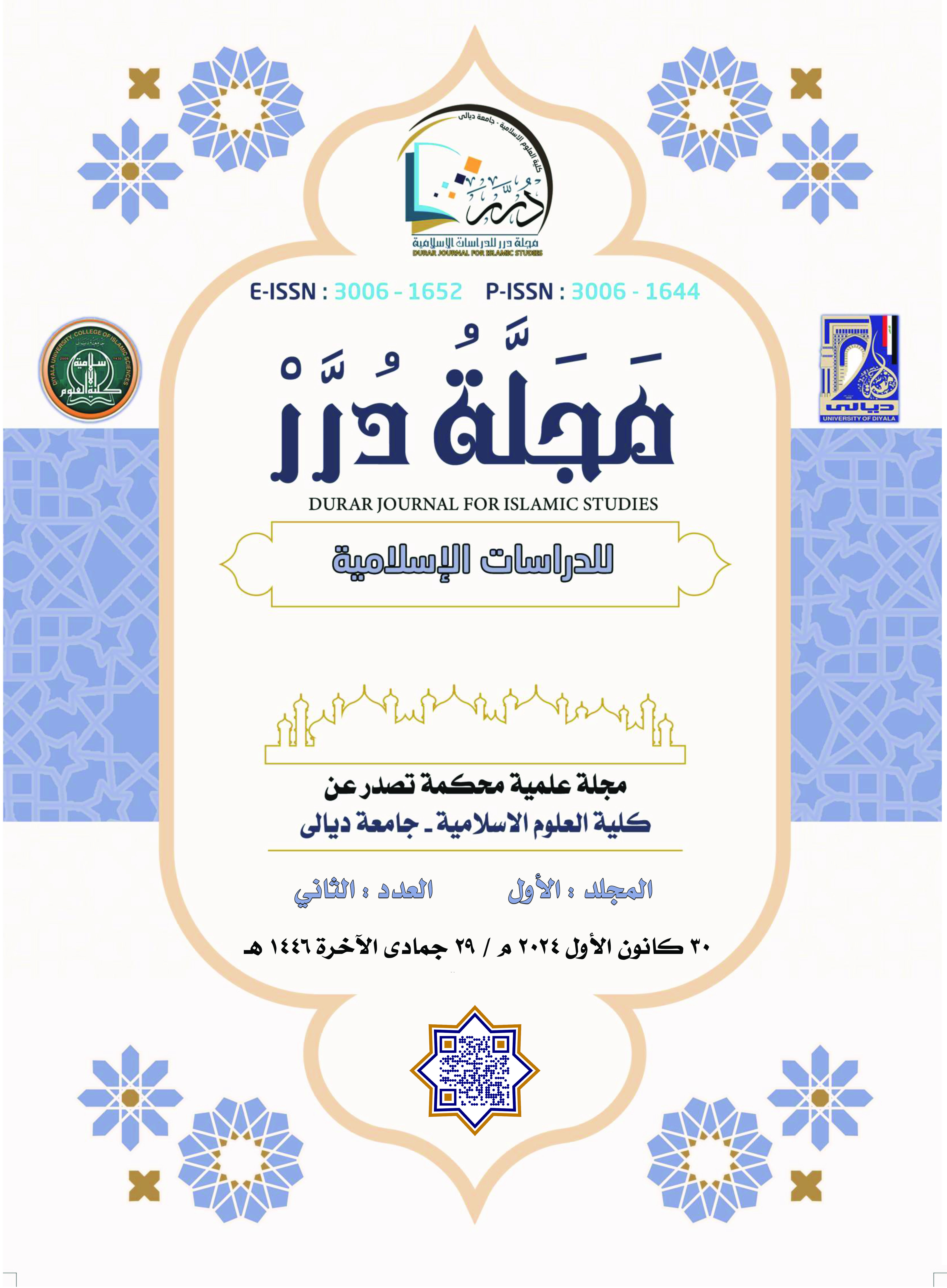Abstract
his research examines:
Imam Al-Tawdi’s views on personal status issues in his book Tuhfat al-Hakam. It analyzes his approach to marriage, divorce, and wills, focusing on his reliance on Maliki jurisprudence. The research is divided into four sections
Section One: Discusses guardianship in marriage
T e, including the precedence of full brothers, compulsory marriage for the mentally ill and virgins, and the appointment of a guardian.
Section Two: Examines the annulment of marriage contracts, including invalid contracts and the ruling upon a spouse’s death in a flawed marriage.
Section Three: Covers conditions and gifts in marriage, including obligating minors to adhere to their father’s marriage conditions and the validity of gifts given before debts.
Section Four: Focuses on divorce, wills, and oaths, including explicit and implicit divorce, the impact of oaths on marriage, and bequests to heirs.
The study concludes that Imam Al-Tawdi’s views offer a balanced understanding of Islamic law, making them relevant for contemporary personal status issues
Imam Al-Tawdi’s views on personal status issues in his book Tuhfat al-Hakam. It analyzes his approach to marriage, divorce, and wills, focusing on his reliance on Maliki jurisprudence. The research is divided into four sections
Section One: Discusses guardianship in marriage
T e, including the precedence of full brothers, compulsory marriage for the mentally ill and virgins, and the appointment of a guardian.
Section Two: Examines the annulment of marriage contracts, including invalid contracts and the ruling upon a spouse’s death in a flawed marriage.
Section Three: Covers conditions and gifts in marriage, including obligating minors to adhere to their father’s marriage conditions and the validity of gifts given before debts.
Section Four: Focuses on divorce, wills, and oaths, including explicit and implicit divorce, the impact of oaths on marriage, and bequests to heirs.
The study concludes that Imam Al-Tawdi’s views offer a balanced understanding of Islamic law, making them relevant for contemporary personal status issues
Keywords
comparative jurisprudence
Imam Al-Tawudi
Maliki Jurisprudence
Personal Status Law
Tuhfat Al-Hukkam
Abstract
يتناول هذا البحث اختيارات الإمام التاودي في مسائل الأحوال الشخصية كما وردت في كتاب تحفة الحكام. يهدف البحث إلى تحليل آرائه الفقهية وإبراز منهجه في معالجة قضايا النكاح والطلاق والوصايا، ومدى استناده إلى أصول الفقه المالكي. تم تقسيم البحث إلى أربعة مباحث رئيسية: ففي المبحث الاول يتناول أحكام الولاية في النكاح، مع التركيز على تقديم الأخ الشقيق على الأخ لأب، وإجبار المجنونة والبكر على النكاح، وتولية الوصي في عقد النكاح.وفي المبحث الثاني يبحث في كيفية فسخ عقد النكاح، ويتناول عدم فسخ العقد، وفسخ النكاح الفاسد، والحكم عند موت أحد الزوجين في النكاح الفاسد.
اما الثالث: يعالج أحكام الشرط والهبة في النكاح، بما يشمل إلزام الصغير بشروط عقد أبيه، وصحة الهبة بالتزويج قبل الديون.وفي الرابع:يركز على الطلاق والوصايا والأيمان، مع مناقشة الطلاق الصريح والكناية، تأثير الحلف بالأيمان اللازمة على النكاح، وحكم الوصية للوارث.
يخلص البحث إلى أن الإمام التاودي قدّم اجتهادات فقهية متوازنة تراعي مقاصد الشريعة، مما يجعلها ذات أهمية في دراسة الأحوال الشخصية وتطويرها في السياق المعاصر.
اما الثالث: يعالج أحكام الشرط والهبة في النكاح، بما يشمل إلزام الصغير بشروط عقد أبيه، وصحة الهبة بالتزويج قبل الديون.وفي الرابع:يركز على الطلاق والوصايا والأيمان، مع مناقشة الطلاق الصريح والكناية، تأثير الحلف بالأيمان اللازمة على النكاح، وحكم الوصية للوارث.
يخلص البحث إلى أن الإمام التاودي قدّم اجتهادات فقهية متوازنة تراعي مقاصد الشريعة، مما يجعلها ذات أهمية في دراسة الأحوال الشخصية وتطويرها في السياق المعاصر.
Keywords
الامام التاودي،تحفة الحكام،الفقه المالكي،الفقه المقارن،الاحوال الشخصية
